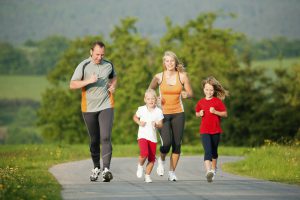The image source is Pexels.
The COVID 19 pandemic created a crisis in the economy and health sectors worldwide. Health is a significant factor in determining the lifespan of an individual. When you are healthy, you can perform and be more productive and energetic. The tips discussed below will help ensure that you are healthy and in good shape, especially in the phase of COVID 19.
Avoid Crowded Places.
CDC guidelines recommend a 6-ft interpersonal social distance in public places. These include grocery stores, restaurants, places of worship, parks, and other public spaces. Most COVID 19 patients are asymptomatic; however, this does not mean that one cannot transmit the virus to other people.
As life slowly returns to normalcy, entrepreneurs are encouraged to incorporate the COVID 19 guidelines in their daily operations. The latter is done through the placement of handwashing stations, social distance stickers, and advocating for their clients to wear face masks. In addition, avoid skin to skin contact through hugging or handshaking with your loved ones.
Exercise regularly.
You should ensure you are active by involving yourself in any physical activity such as running, dancing and carrying out household chores. Alternatively, one could engage in recreational activities like swimming, playing tennis, hiking, or occasional aerobics.
Research explains that the amount of physical activity your body needs depends on your age. Adults aged 18-64 years are encouraged to exercise for at least 150 minutes per week. For additional health benefits, you can increase your exercises to 300 minutes throughout the week.
Cover Your Mouth When Sneezing or Coughing.
If an infected individual sneezes or coughs, contagious elements may be spread to other people through the air droplets. For instance, diseases such as covid-19, tuberculosis, influenza and pneumonia are spread through air. If you feel like coughing or sneezing, ensure you cover your mouth using a face mask and then make sure you dispose of it carefully.
Research states that the best way to prevent the spread of Covid 19 is through wearing a face mask. The National Institute for Occupational Safety and Health (NIOSH) approves the use of N95 masks in patients at high risk of contracting Covid 19 if you are looking where to buy a n95 mask for your family members. Avoid face and hand contact at all times. After sneezing, ensure that you wash your hands thoroughly with soap and water for at least 20 seconds.
Eat A Healthy Diet.
Eating healthy reduces the possibility of malnutrition and acquiring non-communicable illnesses such as cancer, heart disease, diabetes and stroke. Recent studies have shown a direct correlation between increased mortality cases in patients with COVID 19 and other comorbid conditions like diabetes and hypertension.
Therefore, you should make sure you consume a blend of a variety of fruits, whole grains, legumes, vegetables, and nuts. Adults should consume at least 400g of vegetables and fruits daily. You can increase your consumption of vegetables and fruits by eating them as snacks and in season and adding veggies to your meal.
Wash Your Hands Frequently.
As per the CDC guidelines, frequent washing of one’s hands minimizes the risk of contracting Covid 19. Therefore, one is advised to wash their hands and avoid touching their faces, especially the Face’s T-zone. The T-zone entails the eyes, nose, and mouth regions. An alternative to hand washing is sanitization with 70% alcohol-based hand sanitizer.
CDC recommends a particular handwashing technique that ensures that you are thorough. Wash your hands with clean water and soap for at least 20 seconds. The handwashing technique pays specific attention to the folds and crevices of the hands that are often ignored in routine handwashing.
Disinfect Surfaces and Common Household Items.
Research reveals that the COVID 19 virus remains viable on surfaces for long periods. Therefore, to prevent transmission, individuals are advised to disinfect surfaces in shared rooms and limit the sharing of personal items like phones, combs, and appliances. Shared surfaces that should be disinfected are doorknobs, countertops, toys, and furniture.
Additionally, clean utensils, cups, and other everyday items frequently. One could opt to use one-time disposable utensils to reduce transmission. Alternatively, one could order take-out from restaurants to eliminate the aspect of shared utensils. However, this is not feasible in the long run.
Self-quarantine.
In case you present with COVID 19 symptoms, it is crucial to get yourself tested by visiting a hospital. Alternatively, there are self-test kits that show the results in a matter of minutes. Individuals who test positive for COVID 19 and are asymptomatic should self-quarantine in your residential place for at least one fortnight.
Conclusion
Conclusively, health is a personal responsibility, and COVID 19 has shown the importance of hygiene in preventing diseases.


